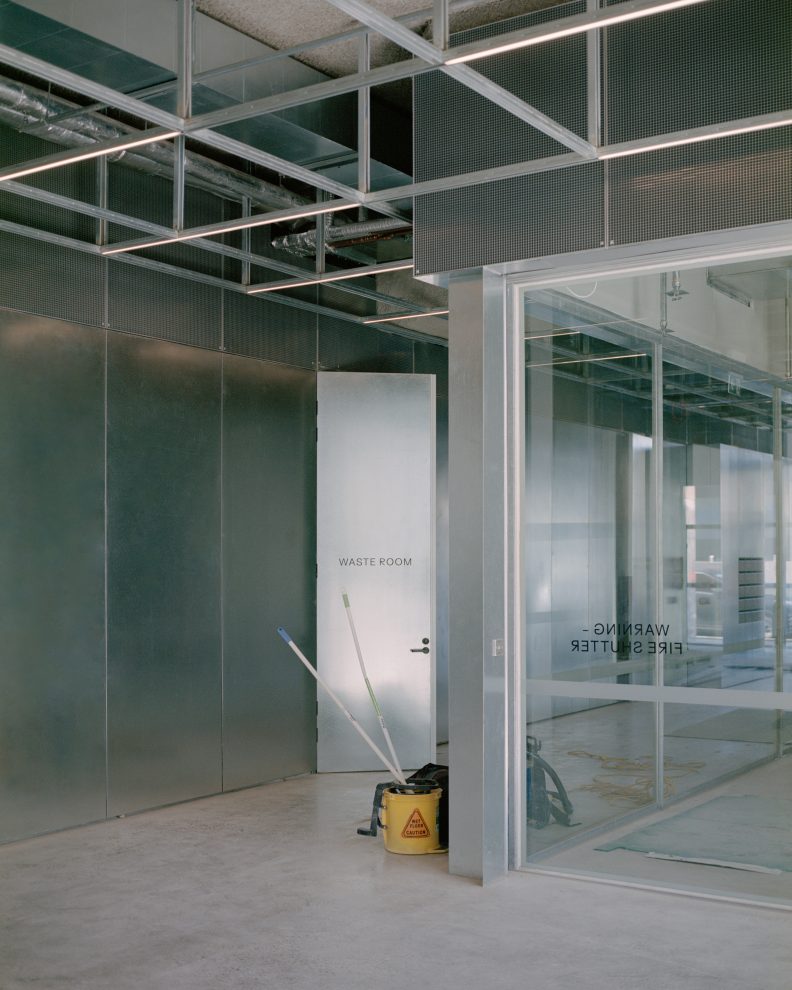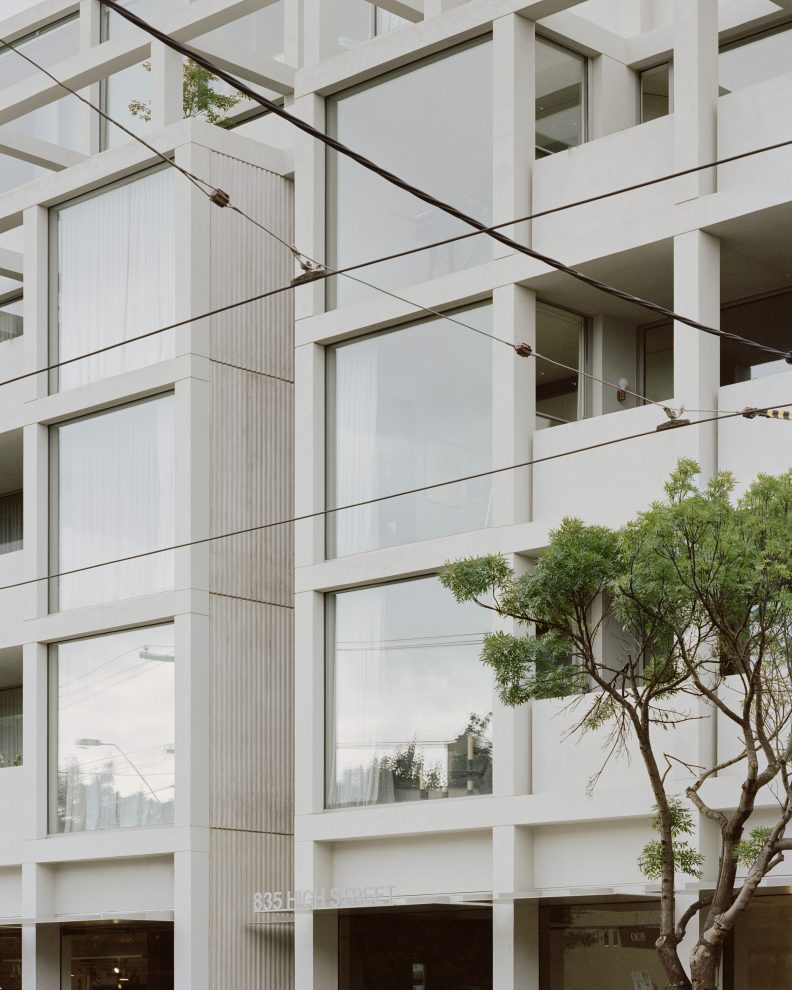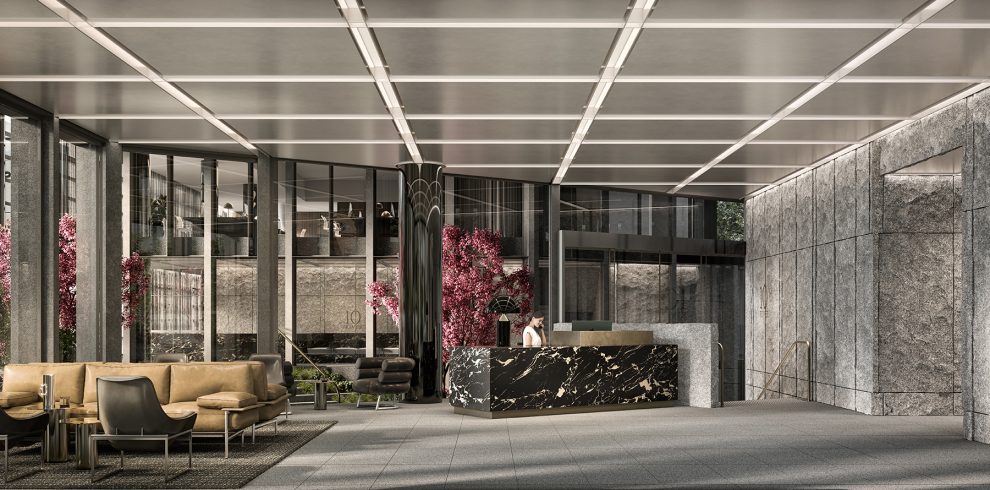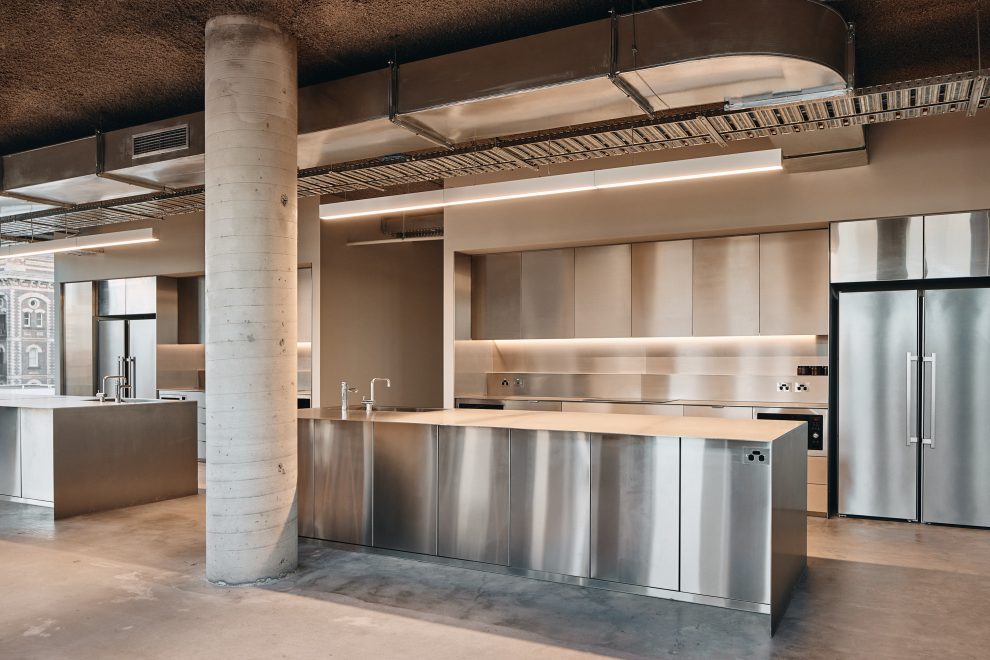Set within the ever-evolving pocket of Collingwood, 116 Rokeby by Carr takes cues from the fragmented industrial materiality of Collingwood with a rigorous approach to sustainability.
The form is robust and tactile, expressing strong architectural repetition on the façade while bringing a holistic, inside-out approach.
The developer – Figurehead – is both the client and builder. Through their passion for longevity in design innovation and sustainability, the project is robust in form and materiality while being imbued with extensive environmental passive measures.
The design is conceived to create a ‘breathing space’, which represents our vision for this future office. It is founded on the desire to shape spaces that harness the fundamental characteristics of abundant natural light, controlled fresh air, adaptability in space, and environmental sustainability – all set within a strong built form.
From conception we have been working towards designing a gas neutral building in response to what we see as a climate and biodiversity emergency within the industry.”
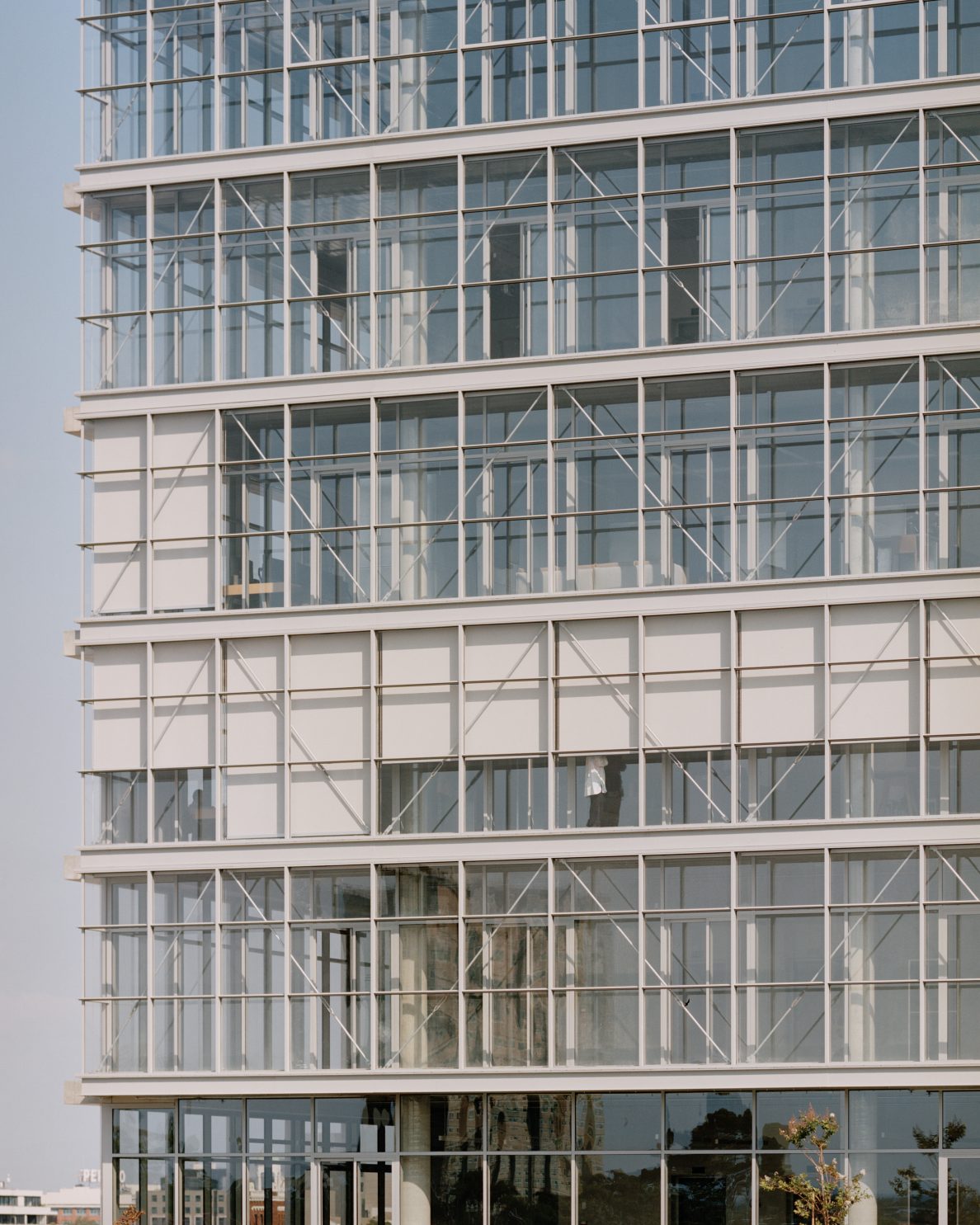
Architecturally, the tower and podium forms of the building respond to the climatic conditions of the site, which are expressed through similar proportions, rhythm, materiality and repetition in the design. Through the construction methodology, there is a tactile sensibility that comes through in this building. The architectural form is strong on the western and eastern facades, akin to the fragmented and industrial palette of Collingwood, and designed to combat heat gain while maintaining views and daylight.
This is complemented by a diaphanous, operable double-skin façade to the north, where environmental sustainability innovation is the focus. The double-skin façade is also used as an architectural device to control heat gain, daylight, glare and air quality while naturally ventilating the floor plates. The southern façade acts as a canvas for a commissioned First Nations artwork that respectfully acknowledges the Traditional Owners of the land on which 116 Rokeby sits, the Wurundjeri Woi Wurrung people.
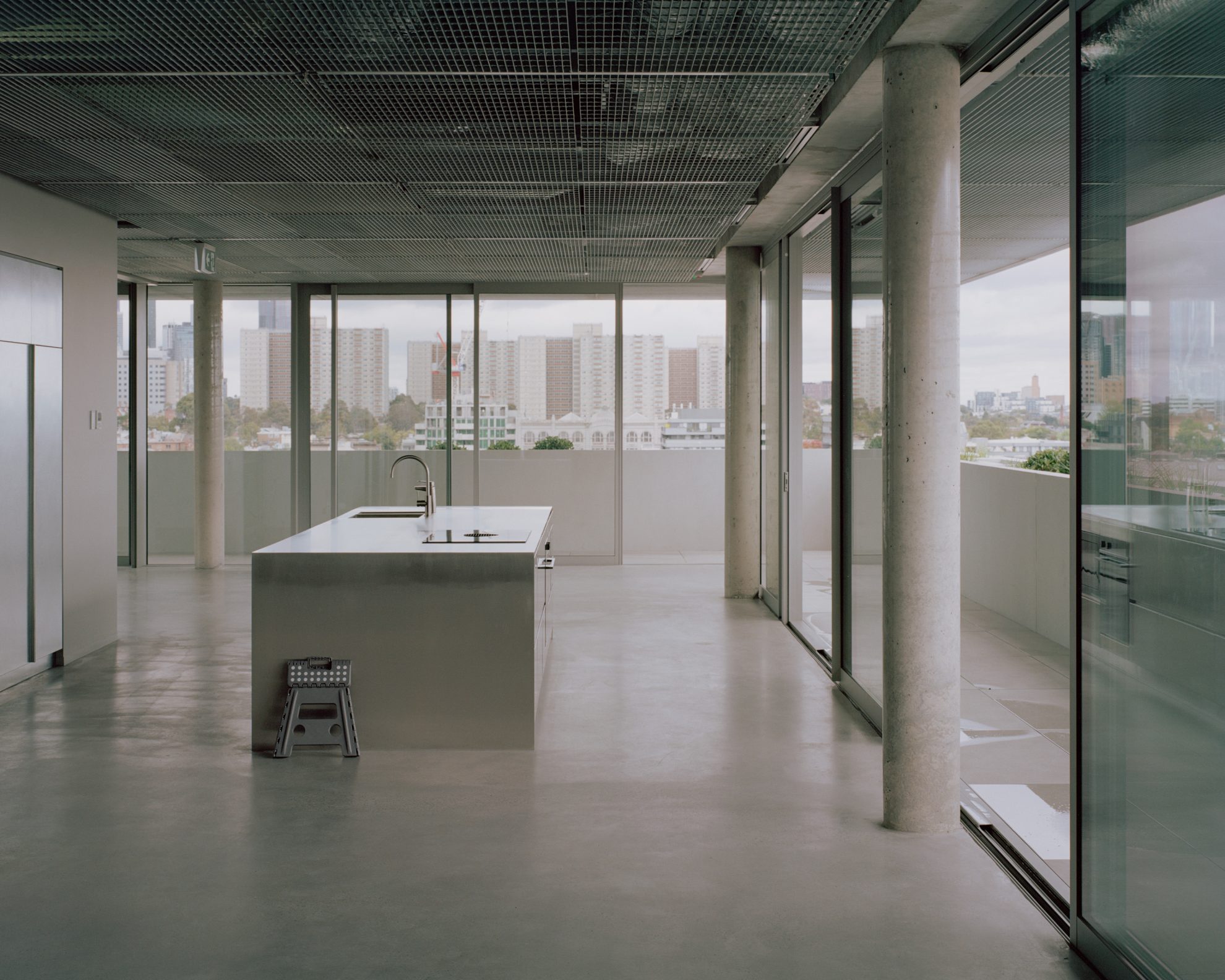
Arriving at a more holistic approach with form and materiality working in tandem, the tactile surpasses the visual.
With a core focus on sustainability, 116 Rokeby has ‘Climate Active Carbon Neutral’ status, which is certified by the Australian Government, with a Platinum WELL Certification and 5.5 NABERS Energy Rating. The project incorporates a passive approach to the building massing and articulation, a double skin façade, efficient lighting, smart controls, photovoltaics, significant landscaping, and an all-electric building approach. All these initiatives ensure the spaces positively impact the well-being of the end user.
We’ve worked with Carr for many years, and there is clear alignment on our approach to the built environment. Their commitment to innovation and disciplined approach to detail has been demonstrated consistently, 116 Rokeby is a testament to this.”
A range of amenities are located throughout the building, adding to the desirability and flexible functionality for the end user. A rooftop space with outdoor meeting areas, alongside a large communal kitchen and bookable flexi-space for tenants. The ground floor includes a small but highly flexible retail tenancy that will have the ability to adapt from day to night. Also situated on the ground floor is an end-of-trip facility housing changing rooms, showers, bicycle and parcel storage.
“Key to our planning was ensuring the building did not turn its back to Rokeby Street, as such a highly porous ground plane has been created. Rational planning ensures great visibility through the site from the street, with an F&B offering to have operable and moveable elements to change throughout the day and for different uses,” says Director Stephen McGarry.
Bringing light and air throughout the building was a critical factor. Punctuations in the podium slabs create a series of light wells to permeate through to the ground floor spaces.
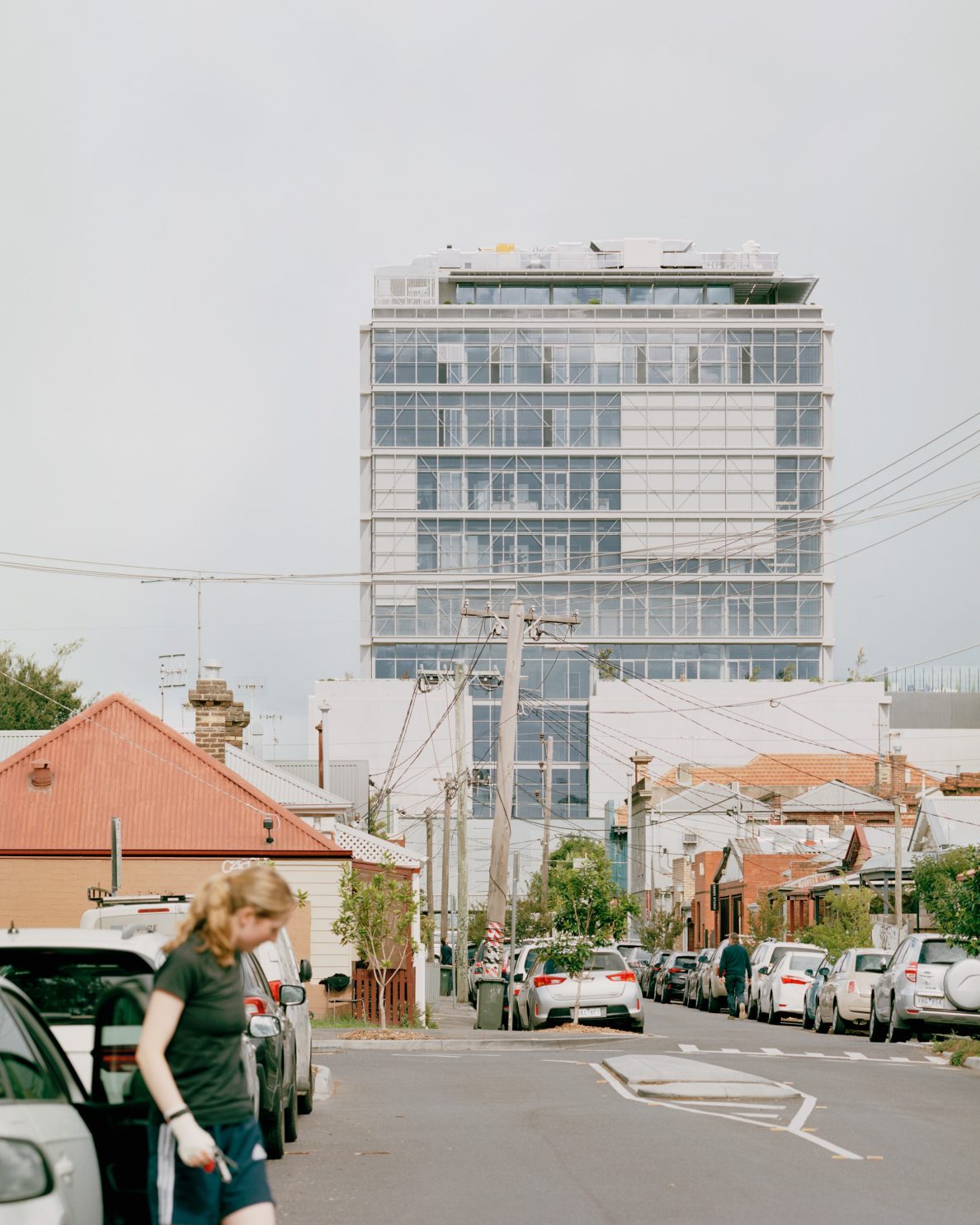
The landscape strategy was another important consideration in this project, working in collaboration with Eckersley Garden Architecture. Despite the site constraints and minimal opportunity for deep soil planting significant landscaping is proposed for the ground floor, podium and rooftop levels, with a series of raised concrete planters, integrated seating and layered planting mix.
Benefiting from Carr’s expertise in the commercial workplace and public realm, a design approach with a philosophy of health and wellbeing has driven maximization of daylight, natural ventilation, vertical circulation, floorplate efficiency and whole-of-building amenities.
116 Rokeby has a deeply holistic approach to design, sustainability and performance. “We have a forward-thinking client that believes in innovative design and architecture. One that understands the tremendous values and impact that sustainability can have on how tenants will feel in the space,” adds Stephen.
Discuss with Stephen how to achieve passive design in larger-scale buildings.
